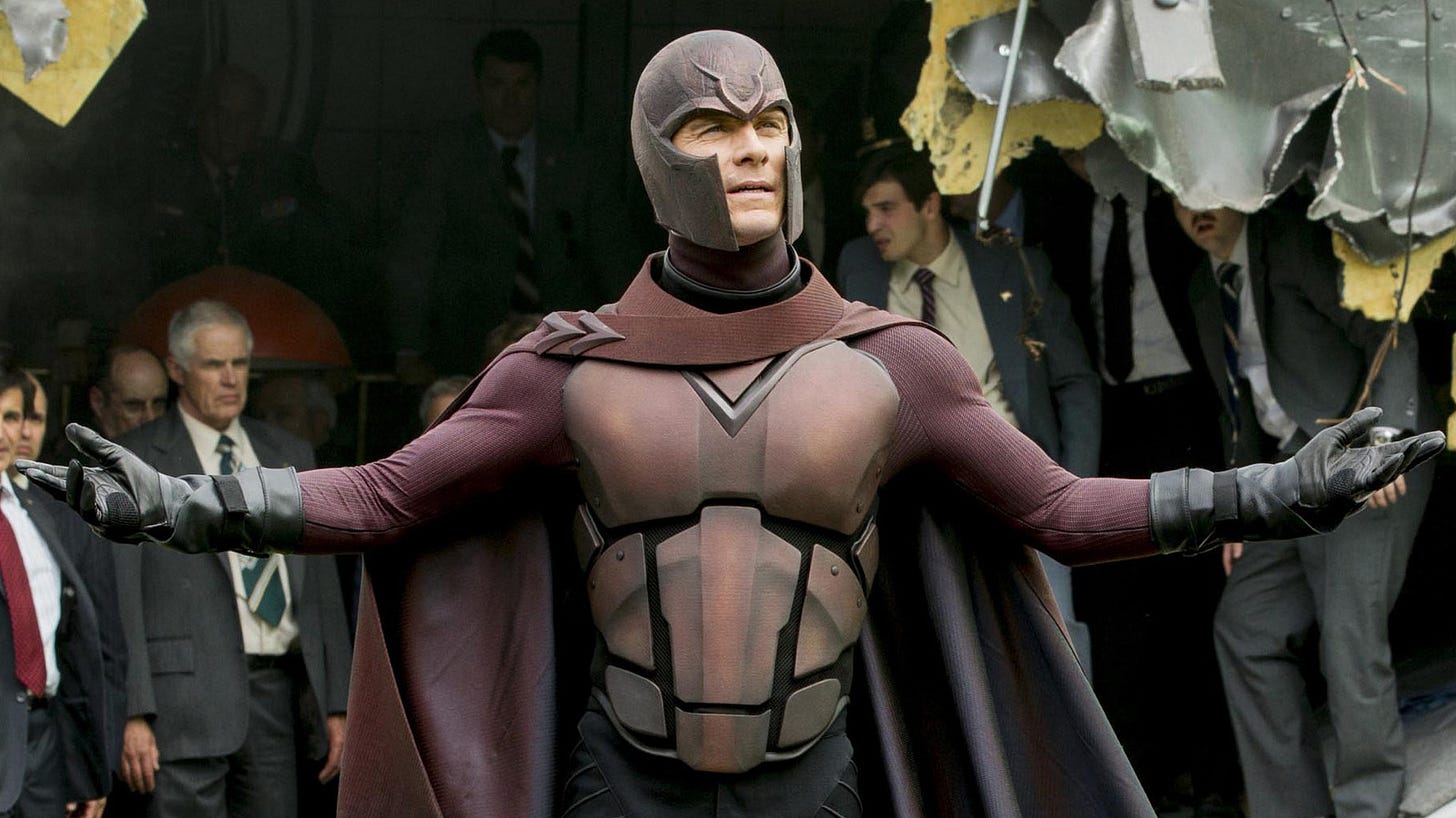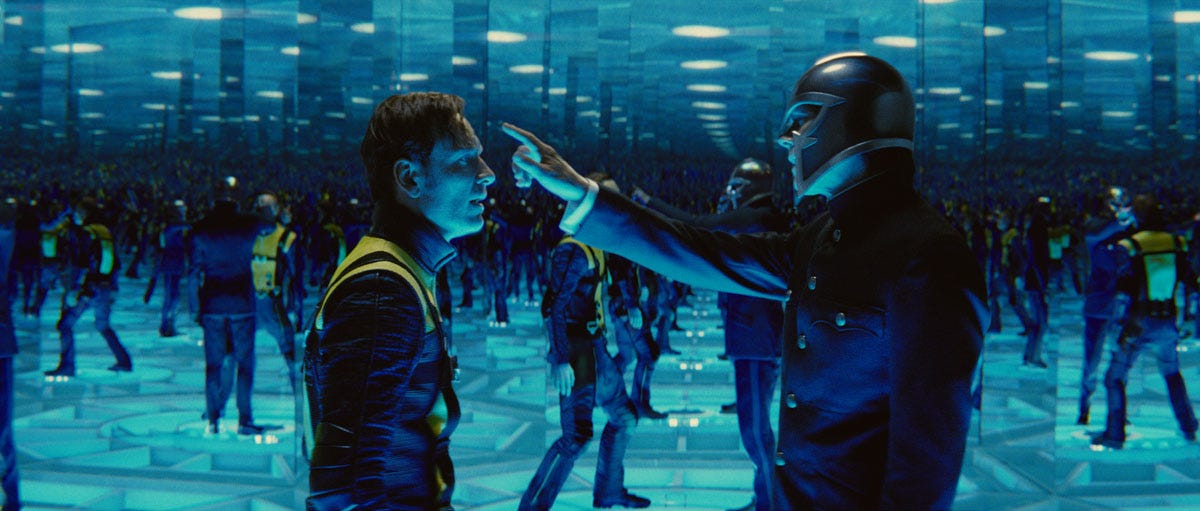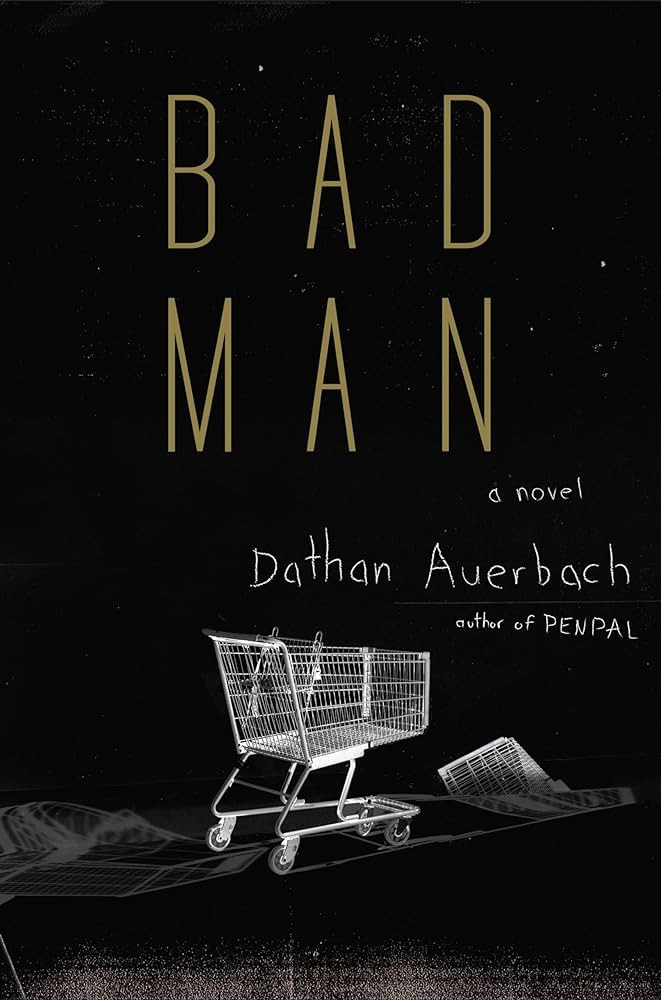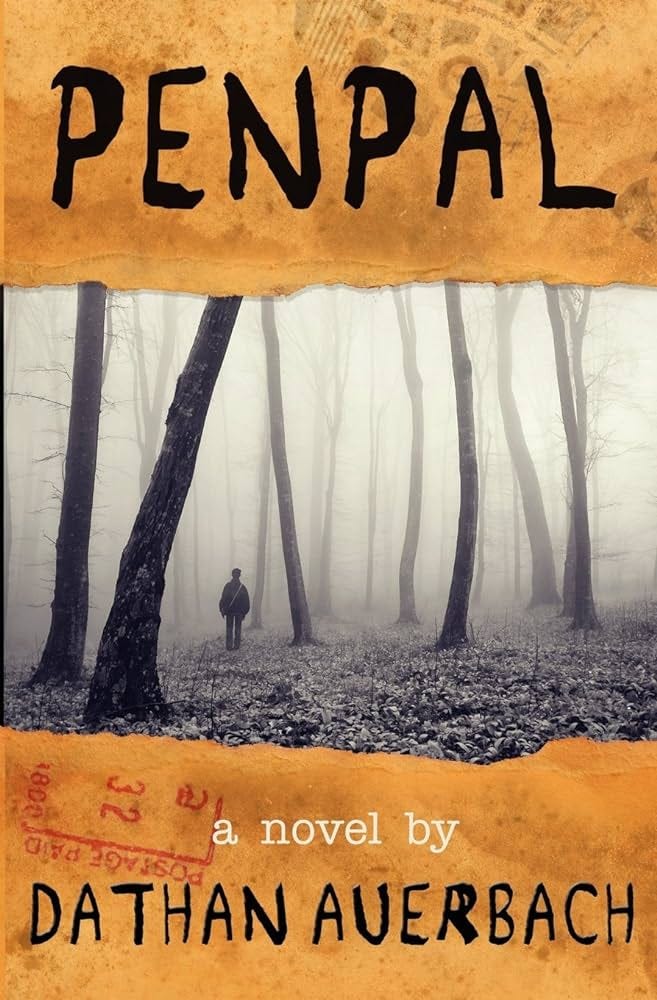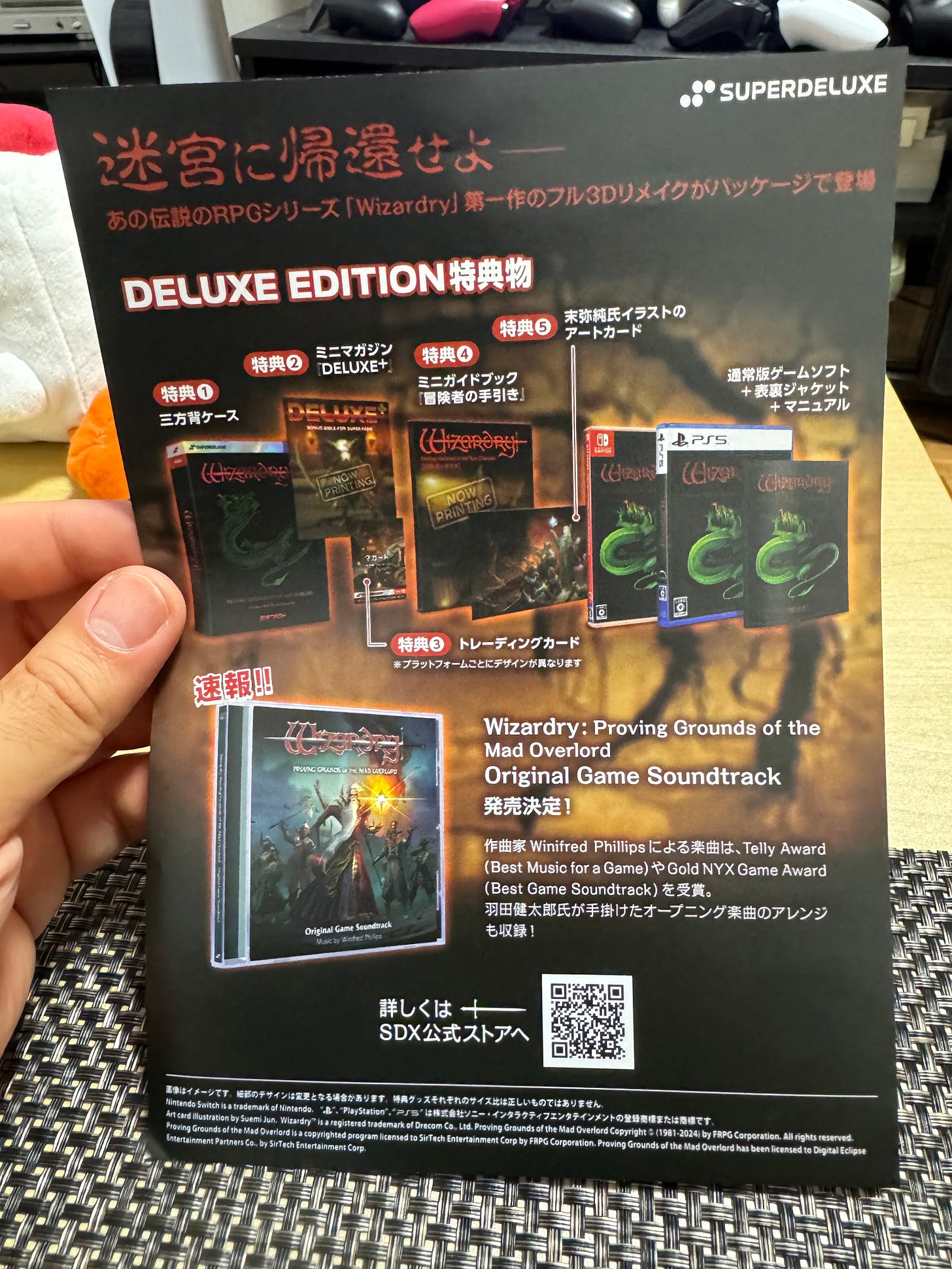Bonus Perspectives: Trump Lives, Goodbye Biden, Yasuke, X-Men, and BitSummit
(Re)introducing a new weekly column series at Foreign Perspectives.
It’s time to introduce some consistency — a consistent posting schedule that is. Perhaps the biggest issues I’ve encountered in running this Substack is the long wait between articles.
The last piece published here on Foreign Perspectives was over three weeks ago when I did a lengthy follow-up to my article on immigration to Japan for The Spectator. The last original piece published on Foreign Perspectives was from over a month ago when I covered the recent Nintendo Direct. To an outside observer, it may seem that I’ve been slacking with writing articles, but I can assure you that the opposite is true.
As evidenced by most of the content on this Substack, I like to take my time with things to make sure articles are well-researched and thorough. Outside of Foreign Perspectives, I had multiple freelance gigs until recently to keep up with which meant that I couldn’t always dedicate as much time as I wanted to this platform. I’m also a full-time graduate student working on a PhD and have just began an entirely new part-time job for extra income, so you probably get the picture that my time is pretty limited.
Those excuses aside, my freelance writings opportunities have largely dried up for the time being, which means that I’ll be able to make Substack my main focus. But I still wanted to address the issue of long waits between full articles, so I’ve come up with the perfect solution — a new weekly column series. Or rather, the rebranding of an existing one.
As readers of Foreign Perspectives are aware, I previously reposted my articles published elsewhere under the column series Bonus Perspectives. Akin to the special features that follow the main movie on a DVD, it was intended to both inform my subscribers of my freelance work and to also provide extra commentary or context around the subject being covered. I rather liked the breakdown format, but due to the lack of freelance jobs, the future of Bonus Perspectives looked rather dire.
So instead of leaving it to die, I’ve decided to bring it back, expand the concept, and use it to fill the gap between my more substantial articles. Every Monday, I plan to post a new entry of Bonus Perspectives that will cover the following six points:
-My thoughts on a notable story in Western news
-My thoughts on a notable story in Japanese news
-What films and television shows I’ve recently watched
-What music I’m listening to
-What books I’m reading/have read
-What video games I’m currently playing
I’ll admit that the concept is somewhat similar to my friend Noah Smith’s “At least five interesting things” column, but I think compilation articles summarizing my thoughts on current events and providing media recommendations is a good fit for this Substack. After all, the point of Foreign Perspectives is to introduce readers to diverse concepts they might have otherwise never learned about.
Some of you may ask “Isn’t this just more work for you?” And my answer is, not really. While this week’s entry of Bonus Perspectives is longer since I’m dedicating space to explain the rebranded concept, regular articles in this column series will only be around 1200-1500 words each. I can easily hammer that out in a weekend and it will give me motivation to stick to a consistent writing routine in general.
What does this mean for the rest of Foreign Perspectives? It will vary depending on how much I can get done, but I will aim to have 2-3 in-depth articles every month outside of this column series that continue to cover the subjects I’m passionate about such as life in Japan or war movies. By doing this, I believe I’ll be able to greatly increase my subscribers and overall audience reach.
However, my plan is to gradually make most of those articles exclusive for paid subscribers while every weekly entry of Bonus Perspectives will be free for everyone. The intention was to always make this Substack a viable source of income, and I am getting closer to that goal thanks to my generous patrons. So let me take this opportunity to once again express my appreciation for those who pay to read all the content available at Foreign Perspectives. I couldn’t do this without you.
I will try my best to stay true to the promise of making Bonus Perspectives a regular column series, but occasionally travel or holiday plans will result in me taking a week off. When this is expected, the latest article will notify readers ahead of time.
Also bear in mind that Bonus Perspectives will be out on Mondays, so what stories I cover here will be about the previous week’s events. I think this will allow important events to marinate as all the facts come in over several days. I’d rather provide a more informed opinion over a hot take on breaking news that will likely become outdated within 24 hours.
With that bit of housekeeping out of the way, let’s kickstart the maiden voyage of the brand new, shiny, sparkling incarnation of Bonus Perspectives.
The Attempted Assassination of Donald Trump by the Coward Thomas Matthew Crooks
Of course, we have to address the elephant in the room. It’s no exaggeration to say that a week ago the United States, and by extension the entire world, narrowly avoided unspeakable catastrophe with former President Donald Trump surviving the attempt on his life.
My thoughts on what happened are not much different than what I initially posted on Twitter in the immediate aftermath, but what probably sticks out to me the most is how we still know very little about the perpetrator Thomas Matthew Crooks. Killed by the Secret Service almost immediately after he shot at Trump, the 20-year-old man left a minimal digital footprint behind and his motives are still a mystery.
The attempted assassination holds personal significance for me because it happened in Butler, Pennsylvania which is less than an hour from my birthplace of Pittsburgh. Crooks was from Bethel Park, which is just a stone throw’s away from Mt. Lebanon, the suburban neighborhood I grew up in. Here in Japan, people have been making similar comparisons to the assassination of former Prime Minister Shinzo Abe, and some Japanese commentators even took the joke meme seriously that Trump heard Abe’s voice when he hit the ground.
Crooks was registered as a Republican, but he (or at least someone with the same name) also sent a $15 donation to a progressive organization in 2021. According to testimony from his former high school classmates, he was described as a loner and relentlessly bullied. While it’s still too early to come to any conclusions, it wouldn’t surprise me if Crooks was closer to the mold of a classic school shooter rather than someone with well thought-out political motivations.
Having literally dodged a bullet, Trump’s survival only increases his chances of winning the presidency this November. He has now become an unintentional symbol of resilience and courage even to people who normally dislike him. Just as I was writing this column, Joe Biden announced on Sunday that he would be dropping out of the election entirely. This follows his disastrous performance against Trump during their first debate last month and pretty obvious signs of cognitive decline.
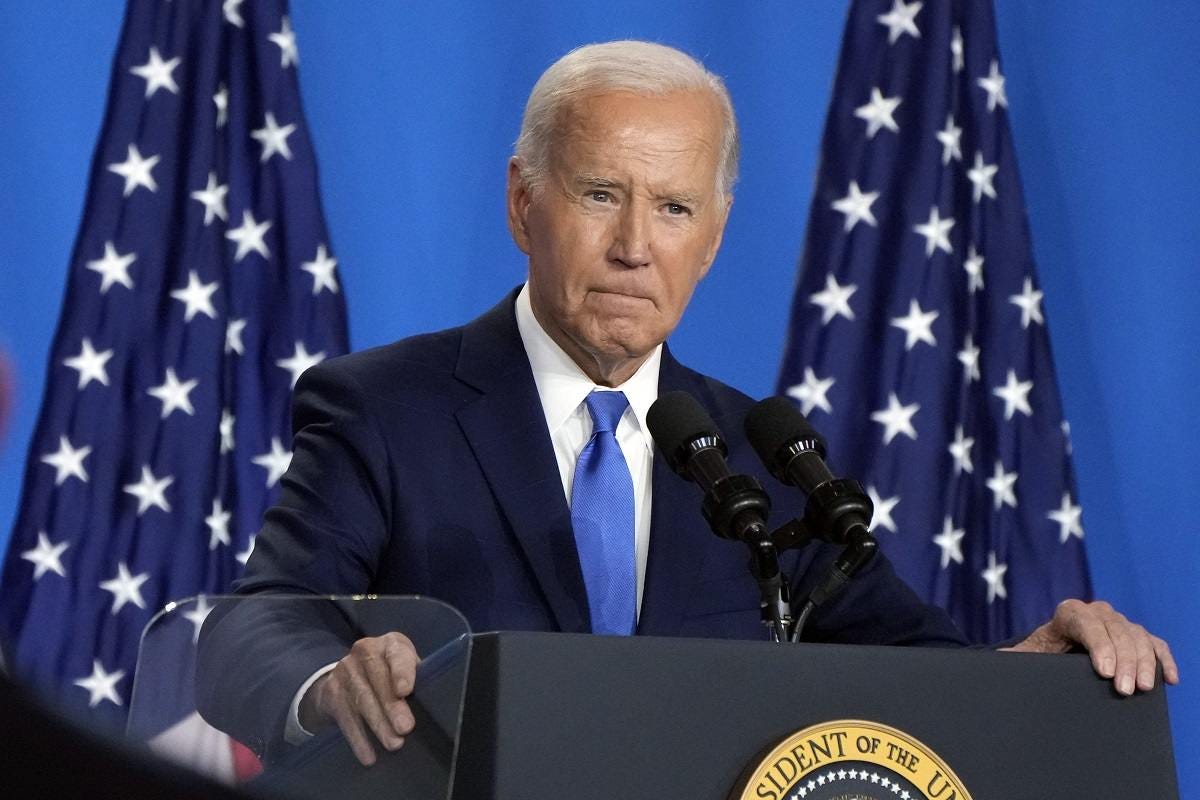
While this column usually won’t comment on breaking news, it’s pretty hard to ignore this story a week after Trump’s near brush with death. Vice President Kamala Harris is now the new presumptive nominee in the eyes of many, but it remains to be seen how the Democrats will scramble to choose their candidate. While I’m not a gambling man, I’m now more prepared than ever for a second Trump term.
Enough About Yasuke

I’m honestly sick of talking about the subject of Yasuke, a man of African origin who served Japanese warlord Oda Nobunaga as a retainer during the Sengoku era. I wrote a full article last year about Yasuke, specifically covering how little we know about him and why it’s very difficult to determine if he was actually a samurai like much of pop culture claims. Yasuke is also currently the center of controversy around Assassin’s Creed: Shadows, the upcoming latest entry in Ubisoft’s long-running series of action video games.
Many are taking issue with Yasuke being one of the main protagonists, but that doesn’t bother me as much since Assassin’s Creed has always played loose with history and it’s not a series I’m particularly interested in. What does bother me though is that Ubisoft’s inclusion of him is just making the discourse around Yasuke even worse than it already was, which my article showed.
My piece from 2023 also discussed and refuted the work of Thomas Lockley, a professor at Nihon University who wrote a book called African Samurai, the first and really only major work of literature dedicated to Yasuke. But despite the paucity of primary sources about Yasuke’s life, Lockley was somehow able to turn it into a 400 page book by hiring a literal novelist to fill in the gaps while also including extremely stupid speculation that a samurai born hundreds of years later may be related to Yasuke.
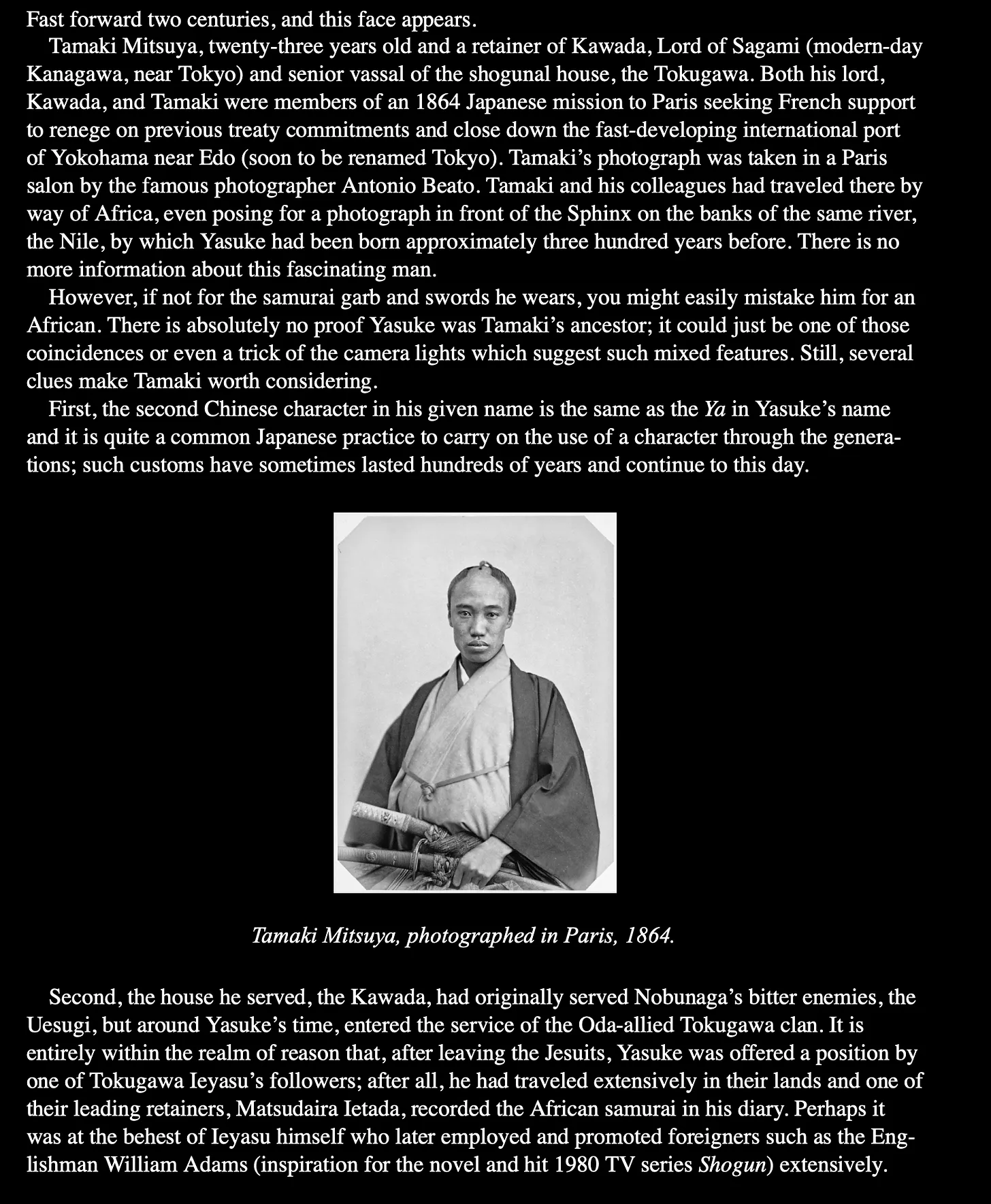
What’s perhaps most fascinating about all of this is that for years Yasuke was hardly a notable fixture of historical discourse within Japan. Sure, he occasionally appeared in television dramas, movies, manga, anime, and video games as a side character to reflect upon the fact that he existed, but no one believed him to be anything more than an interesting minor historical footnote.
Yet last week, Japanese Twitter went into an uproar when a user posted a passage from the Japanese edition of Lockley’s book which contained the bizarre and unsubstantiated claim that Sengoku-era people trafficked African slaves and used them as a social status symbol. Words like “slavery” and “Thomas Lockley” even entered trends because of how much Japanese users were discussing the topic. Of course, this naturally brought discourse around Yasuke front and center.

It should be noted that the 2017 Japanese-language edition of Lockley’s book is actually different from the later 2019 English-language version he co-authored with novelist Geoffrey Girard. The original release was first written in English and translated into Japanese by Yoshiko Fuji. Much of it is still highly speculative, but it lacks the sections that Girard would later contribute for the later English release and is considerably shorter.
Truth be told, my wife gave me the Japanese version of the book *after* I had written my lengthy article on Yasuke as a Christmas present because it was on my Amazon wishlist. By the time I finished my article, I was already quite tired of the subject and only skimmed through it which is why I didn’t catch the slavery line. Needless to say, this only raises more questions around what else Lockley has pulled out of thin air in both editions of his book.

I don’t have much more to say about Yasuke than I already wrote in my piece from last year, but I reposted it on Twitter with the intention of pointing out that I already deeply researched this subject long before it became a culture war issue. This resulted in me gaining thousands of Japanese followers and more subscribers to this Substack, while I also received many tweets and DMs from Japanese people thanking me for writing about Lockley long before most of the public were aware of what he did.
I appreciate the praise, but I want to emphasize that I never wrote about Yasuke or Thomas Lockley to push any kind of political agenda. I simply wrote the piece as someone who cares about history and correcting misinformation. Lockley apparently deleted his Facebook page as a result of the backlash, and some are reporting that his fabrications/exaggerations could even lead to some kind of diplomatic issue as Lockley is a British national working at a Japanese university, but I personally think this is being a tad exaggerated.

I believe in the principles of free speech and academic freedom, so I’ll defend Lockley’s right to produce whatever research he wants. But if what he’s producing is poor scholarship, which all evidence points to this being the case, his work should be raked over the coals and his reputation appropriately tarnished. Additionally, if he’s receiving any kind of government funding, Japanese nationals have a right to be angry that their taxes are going toward clear bunk. I did a master’s program in international relations on the MEXT scholarship and was able to extend that to my current PhD program, so I’m very conscious of the fact that what research I’m able to achieve is because of Japanese taxpayer money.
To wrap up this controversy around Yasuke though, I’m glad I wrote my piece here on Foreign Perspectives about him long before the Assassin’s Creed and recent Lockley controversy because that should be sufficient proof I’m not trying to do this for clout or attention. On the contrary, I rather dislike that for as many people on the left who seem to think Yasuke was some great samurai warrior, there are those on the right who dismiss him as a slave or pet of Nobunaga. In truth, we have no idea what precise role he played or what ultimately happened to him.
I once again encourage people to read my full article on Yasuke. It goes into exhaustive detail and aims to be far more nuanced than what social media allows. Hopefully this is the last word I’ll have to say on the subject.
What I’m Watching — All the X-Mens
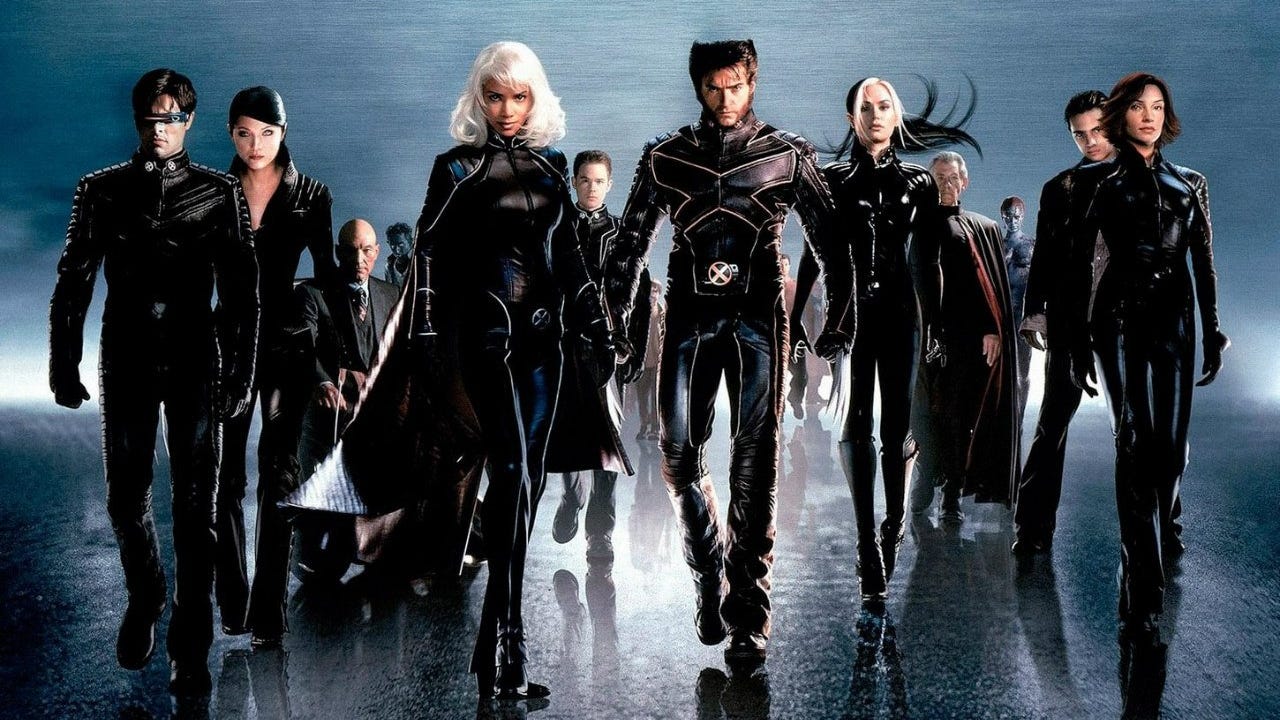
Deadpool and Wolverine is out this week and will actually be hitting Japanese theaters a couple of days before the worldwide premiere. I won’t be able to see it on Wednesday due to scheduling conflicts, but I am planning to see it the following day. Like many, I’ve become quite disillusioned with the current state of the Marvel Cinematic Universe. After 2019’s Avengers: Endgame, this franchise has really struggled to stay afloat both financially and critically. There are occasionally a few good films like Spider-Man: No Way Home and Doctor Strange in the Multiverse of Madness, but one or two hits isn’t enough to save a property that often feels like it’s not even trying.
I suspect that Deadpool and Wolverine is going to be a similarly enjoyable one-off, but where the MCU will go after this does not instill much confidence. Regardless, I decided to revisit the original X-Men films in preparation for the Deadpool threequel. I had already seen most of them when they came out, but my wife hadn’t, so we spent most of July to marathon the franchise. And let me tell you, revisiting comic book movies before the MCU formula became commonplace is weird.
One has to remember that when Bryan Singer’s X-Men debuted on the silver screen in 2000, film studios had practically no confidence in superhero movies. The previous decades had mostly proven the genre to be a flop with the likes of Steel and Howard the Duck, so 20th Century Fox (remember when Disney didn’t own them?) was extremely cautious in giving the greenlight on Stan Lee and Jack Kirby’s team of mutant characters. I won’t do revisionist history and pretend that these adaptations were automatically better than what we have today, but here are my brief thoughts on all the X-Men, Wolverine, and Deadpool films:
-X-Men (2000): Surprisingly holds up well today. While the lack of classic yellow suits and deviations from the source material are lamentable, they make sense within the context of 20th Century Fox wanting audiences to take these characters seriously. The last act has the scale of a cheap television show by today’s standards, but it’s not bad for the time.
-X2 (2003): Now we’re talking. It improves upon every aspect of its predecessor and you care about these characters more. The opening White House action scene is still one of the best moments in the series, while the screenplay does a good job of expanding upon the existing lore. I’ll take this one over most superhero films being released today.
-X-Men: The Last Stand (2006): Rightfully bashed by fans as being inferior to the previous two, but not as bad as you might think. There are for sure plenty of story decisions I disagree with, but many other great moments that are legitimately fantastic. A tighter script and better pacing would’ve improved this one.
-X-Men Origins: Wolverine (2009): By all objective standards a bad movie, but I can’t help but have a soft spot for it in a “So bad, it’s actually entertaining” kind of way. The opening sequence is the best part and what the story should have been. Imagine a war film through the ages starring Wolverine and Sabretooth showing how both men became so brutal and hardened. Luckily the later Wolverine films were huge improvements.
-X-Men: First Class (2011): My favorite mainline X-Men movie. Director Matthew Vaughn knows how to do beautiful colors and gorgeous period piece settings when most of Hollywood these days is obsessed with drab and dark. First Class perfectly captures the original 1960s setting of the comics and has standout performances from James McAvoy and Michael Fassbender as a young Charles Xavier and Magneto.
-The Wolverine (2013): The most underrated movie in the entire franchise. Sandwiched between X-Men Origins: Wolverine and Logan, it has the unfortunate status of the awkward middle child everyone forgets. But that would be a mistake as The Wolverine is a surprisingly thoughtful exploration of the character’s humanity while its Japanese setting is the main highlight. I have a longer article in the works on this film, so stay tuned for that.
-X-Men: Days of Future Past (2014): Fans often call this one the best X-Men film and I can certainly see why. It’s probably the closest the movies ever got to getting the comics right in spirit, the action is fantastic, the performances are exceptional, and the compelling time travel story does an admirable job in trying to bridge both the younger and older eras of X-Men. There are still way too many contradictions in these Fox X-Men films for everything to align neatly unless you introduce the concept of alternate timelines, but I digress. Days of Future Past is honestly where the franchise should have ended before being rebooted completely, but we’ll get to that. I prefer First Class for the more streamlined story, but this one comes very close.
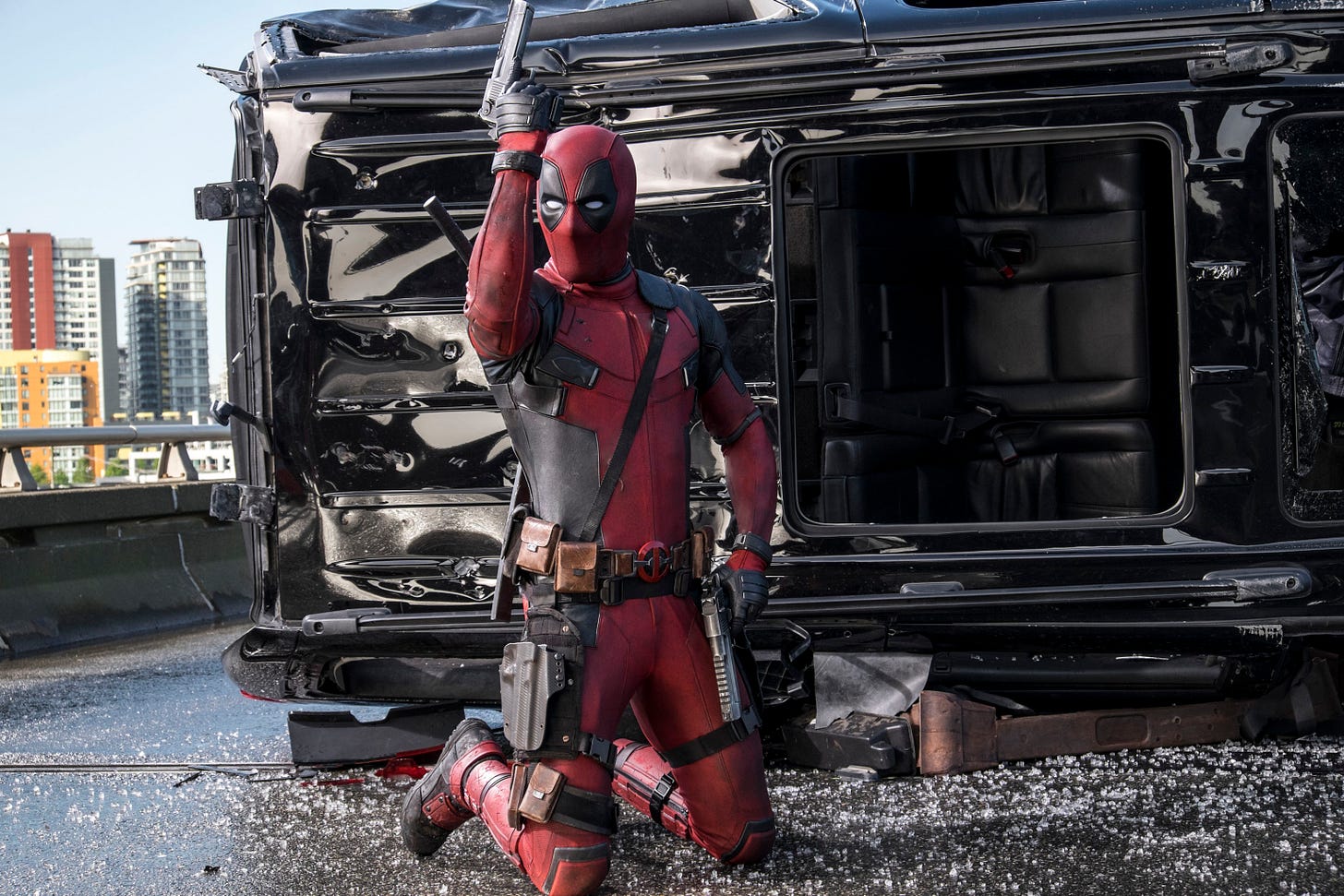
-Deadpool (2016): Whether or not you’ll enjoy Deadpool depends entirely on if you like the character to begin with. If you find the character annoying and grating to the point of exhaustion, this film won’t change your mind. I’ve always had a juvenile sense of humor though, so I’m a fan. My wife named it her favorite out of all the other X-Men films and we had a blast watching the character’s fourth-wall breaking antics and inability to ever shut up. Just as the first X-Men proved to studios that comic book movies can be taken seriously, the first Deadpool showed that R-rated superhero movies are profitable ventures. The killer marketing helped for sure.
-X-Men: Apocalypse (2016): The most forgettable out of all the X-Men films, but not necessarily a completely terrible movie. The action scenes are decently done and I’ll always enjoy seeing more Michael Fassbender as Magneto, but the main villain Apocalypse feels like a joke compared to his original comic book incarnation. Perhaps the worst aspect is the complete waste of the 1980s setting. If it weren’t for a handful of pop culture references, this film could take place today.
-Logan (2017): Here it is, the peak of all the X-Men films and one of the greatest superhero movies ever made. Intended to be Hugh Jackman’s final performance as Wolverine (before teaming up with Deadpool of course), Logan is a violent, mature, and somber epilogue to the character’s very long life. While Wolverine tearing people to bloody shreds is finally shown in full glory because of the R rating, the real highlights of the film are its quiet moments of pensive reflection. I get a ton out of Logan every time I rewatch it, but it only baffles me that a director who made a masterpiece this good also churned out Indiana Jones and the Dial of Destiny. But I’ve already talked about that one to death.

-Deadpool 2 (2018): This was the first entry in the X-Men franchise I had missed completely. By the time Deadpool 2 hit Japan, I was living in the countryside with no nearby cinemas showing it. I later had to go back to the U.S. to finish university, life commitments got in the way, and I sort of just forget about it until this month. Nothing about Deadpool 2 ultimately surprised me though. Once again, if you like Deadpool the character, you’ll like this film. If you don’t, you won’t. I think it’s probably on the same level as its predecessor, though perhaps with a slightly less focused story. I especially liked seeing Brad Pitt appear for the briefest of cameos as The Vanisher.
-Dark Phoenix (2019): Hands down the worst entry in the series. Despite promising to succeed where The Last Stand failed in adapting the famous Dark Phoenix Saga from the comics, this film is a complete mess of ideas that doesn’t come together at all. From Mystique’s utterly stupid “X-Women” line to Sophie Turner’s awful acting as Jean Grey, there’s hardly anything that salvage this dumpster fire. It’s a travesty that this was the last mainline X-Men film. And like Apocalypse with its 1980s setting, Dark Phoenix does jack with its 1990s backdrop.
-The New Mutants (2020): A film that saddens more than angers me since this is where the X-Men franchise went to die. The concept of a small-scale horror movie dealing with lesser-known mutants is fascinating on paper, but mediocre in execution. The constant rewrites and reshoots are wholly apparent, while the only actor present worth watching is Anya Taylor-Joy. If you aren’t familiar with The New Mutants, you’re hardly alone. Barely anyone saw it because it came out at the height of the COVID-19 pandemic when everyone was indoors, while Disney clearly tried to bury the film after its purchase of 20th Century Fox. There’s no point in watching it. Any sequels it sets up will obviously never get made.

What I’m Listening To — Quentin Tarantino Soundtracks

Love him or hate him, you can’t deny that Quentin Tarantino has fantastic taste in music. Before we did our X-Men marathon, I showed my wife not only all of Quentin Tarantino’s films, but also the influential films that inspired him like Where Eagles Dare and Lady Snowblood. It was a viewing project that took over six months to get through, but in the process we watched some of the best movies ever made across multiple genres from Westerns to war films.
Naturally, Tarantino chooses music that fits with the genres he’s paying tribute to. While you may not always like his approach to filmmaking, it’s abundantly clear that the man does his research in everything from aesthetics to sound. After rewatching all nine of Tarantino’s films, I decided to track down their respect CD soundtracks and rip them to my Apple Music library. It’s music that spans everything from pop to soul, with a good dose of surf music and Japanese enka in between.
Here are my recommendations:
-Little Green Bag by George Baker Selection
-Stuck in the Middle with You by Stealers Wheel
-Misirlou by Dick Dale & His Del-Tones
-Jungle Boogie by Kool & the Gang
-Let’s Stay Together by Al Green
-Surf Rider by The Lively Ones
-Across 110th Street by Bobby Womack
-Strawberry Letter 23 by The Brothers Johnson
-Tennessee Stud by Johnny Cash
-Didn't I (Blow Your Mind This Time) by The Delfonics
-Green Hornet by Al Hirt
-Battle Without Honor or Humanity by Tomoyasu Hotei
-Don’t Let Me Be Misunderstood/Esmeralda Suite by Santa Esmeralda
-The Flower of Carnage by Meiko Kaji
-The Lonely Shepherd by Gheorghe Zamfir
-Urami Bushi by Meiko Kaji
-The Green Leaves of Summer by Nick Perito
-Django by Luis Bacalov
-Hush by Deep Purple
-California Dreamin’ by José Feliciano
What I’m Reading — Bad Man: A Creepypasta Novel That’s Actually Good
Anyone remember creepypastas? If you were active on the internet in the early 2010s, you most likely encountered classic horror stories like “Jeff the Killer” and “The Russian Sleep Experiment” which were spread across various forums like the subreddit r/nosleep.
While extremely popular in their day, the majority of these stories have aged pretty terribly in retrospect. Being a teenager at the time allowed me to look past their flaws, but as my friend The Internet Historian has shown, it’s hard not to laugh at their poor writing and often nonsensical leaps in logic. With that said, Penpal by Dathan Auerbach was different. Originally a series of posts uploaded to r/nosleep and later rewritten into a full novel, the chilling story followed a first-person narrator dealing with a mysterious stalker at various stages of his life.
Penpal is truly great horror and I recommend listening to the audiobook reading of the original Reddit posts on YouTube. After seeing success with this project, Auerbach wrote Bad Man in 2018. But while Penpal was about escaping from a monster, Bad Man deals with its main character trying to not become one. Set in rural Florida, the narrative follows a young man named Ben attempting to find his missing little brother Eric who disappeared behind his back five years ago while both were shopping at a local grocery store. Ben becomes obsessed with searching for Eric as his home life deteriorates around him and all leads to his brother’s whereabouts have long gone cold.
Ben eventually ends up working at the same store Eric disappeared in, but gradually grows more suspicious and paranoid of the people around him. Auerbach succeeds at making the grocery store its own haunting character, while we as the reader question if Ben himself is the most reliable of narrators. As someone who actually worked in a supermarket when I lived in America (Auerbach did too and partially based the novel on his experiences), I thought that the descriptions of mundane work and long hours were spot-on.
Bad Man is a bit of a slow burn at times, but the deliberate pacing goes toward a compelling story that becomes quite the page-turner. Some may take issue with its ending, but without spoiling anything, I don’t think I could imagine this book going anywhere else. It’s reported that hundreds of thousands children go missing in the United States every year, and Bad Man captures the pain such heartbreaking cases cause for everyone involved. I hope Dathan Auerbach produces another novel soon because he has the talent to seriously become a renowned horror author.
What I’m Playing — Back from Bitsummit
Lastly, I attended Kyoto’s annual BitSummit over the weekend. It’s a conference for game developers from across the world who show off their latest titles, while others use the event for networking opportunities.
As a contributing writer to the British publisher Lost in Cult, I was able to get in for free with my journalist credentials and interview various developers as I tried out their upcoming games. I first went to BitSummit in 2022, but Japan still being closed off at the time due to the pandemic meant that attendance was minimal. Things were much more packed in 2023 with the borders reopened, but the venue thankfully expanded to two floors this year.
One of the more promising titles I played was Nectarmancer, a non-linear platformer that has been in development for over four years and is aiming to combine the action of Metroidvania games with gardening mechanics. A novel mix for sure, but the demo I played demonstrated some really beautiful pixel art aesthetics and fast-paced gameplay. I’ll definitely be keeping an eye out for this one.
I was also invited to speak with the devs of Crossy Road Castle, a follow-up to Hipster Whale’s extremely popular mobile game. I’ve always loved the adorably blocky animals, and the demo I played had some very enjoyable chaotic multiplayer action. The game has been available on mobile for quite some time, but this updated port for consoles is easily going to be the more desirable version when played on a television with actual controllers and local multiplayer.
I enjoyed playing Sea Fantasy, a charming little RPG that focuses on fishing in an open world 2D environment. It was surprisingly addictive trying to capture various fish, while the overall art style reminded me of something like Chrono Trigger or the SNES Final Fantasy games. The overall script and English translation, however, were a bit stilted. Still, with the game still being awhile off from its projected February 2025 release date, I think there’s plenty of time to iron such things out.

A few bigger titles published by Sony and Nintendo were also on display, but what intrigued me the most was the remake of the first Wizardry game. I’ve never played this series before, but I’m well aware of its reputation among CRPG fans. You don’t get the majority of RPGs as we know them today either without Wizardry because it set all the rules that were subsequently expanded upon. It was also one of the few Western RPGs to get a full Japanese release on computers here back in the 1980s, which later inspired Yuji Horii to create Dragon Quest.
The 3D remake of the series’ inaugural entry, Wizardry: Proving Grounds of the Mad Overlord, has technically already been out since May, but a physical release for Japan will happen in October. I’ve already placed my pre-order for the Switch version, but the demo I played at BitSummit was for the Steam release on mouse and keyboard. There was a bit of a learning curve that I gradually adjusted to throughout my 15-minute demo session, and I know that I’m definitely going to need to use a proper walkthrough when I play the full game.
Wizardry has seen ports across many platforms which gradually expanded upon the extremely simple text-based graphics of the initial Apple II release, but the core gameplay elements are still essentially the same regardless of version. The 3D remake feels appropriately updated for modern hardware while it’s still apparent that this is a game from 1981. The original Apple II gameplay is even visible in the lower righthand corner, which I thought was a fascinating addition. As the granddaddy of RPGs, I’m fully expecting a brutally difficult game when I pick it up this fall, but that will undoubtedly be part of the fun.
Foreign Perspectives is a reader-supported Substack. If you like my work and have come this far as a new reader or free subscriber, consider opting for a paid subscription so I can continue writing in-depth articles such as these on a regular basis. Your support is greatly appreciated!




